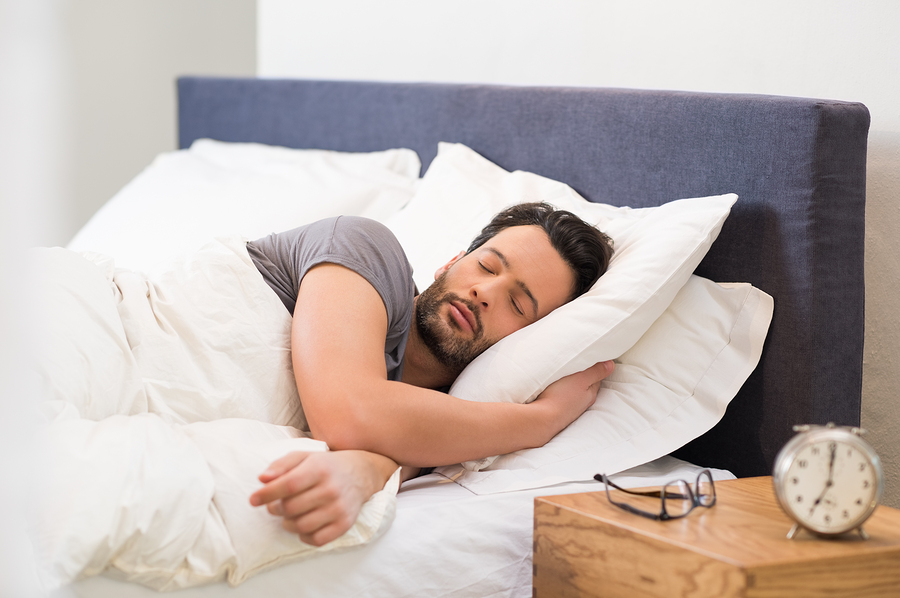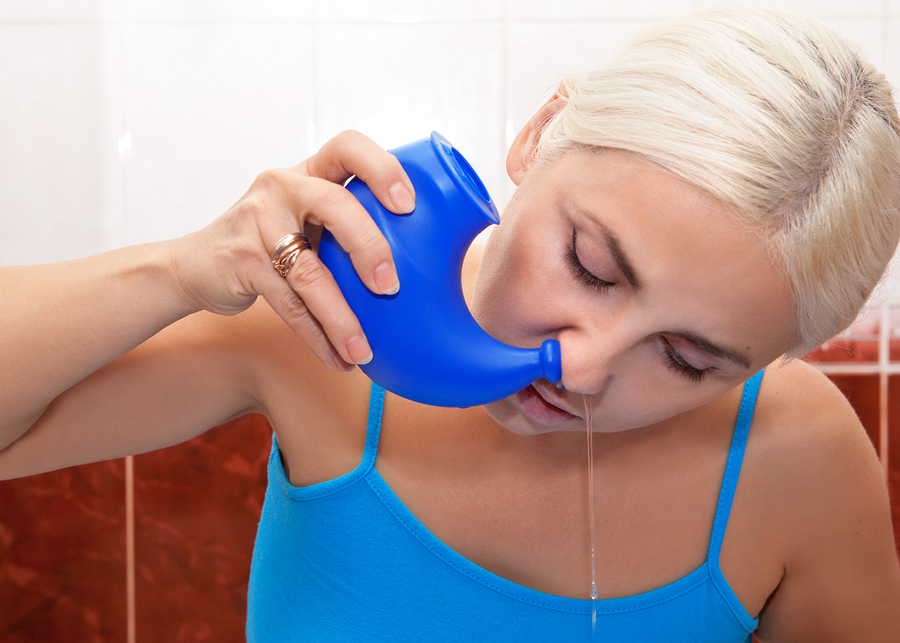Snoring can be one of the most frustrating things that you deal with in your life. Approximately 45 percent of the adult population suffer from snoring and of that 45 percent, 75 percent of them also suffer from sleep apnea. That means that people’s breathing is obstructed while they are sleeping which can increase the risk of developing heart disease.
A spouse that snores can create problems for relationships to the point where sleeping in separate rooms sounds like a good idea. If this scenario sounds all too familiar you’ve probably searched the internet for a remedy hundreds of times but have not come up with any luck. Many over the counter pills and sprays can also be dangerous if you haven’t consulted your doctor beforehand either.
While some of the over the counter methods may work for some, they don’t for others and leaving you feeling worse than before. Luckily there are a bunch of different natural methods out there that you can try without having to purchase any sort of drug. Maintaining a healthy lifestyle is a big winner to help yu stop snoring and can be achieved by following a few easy methods.
To help you out in your sleepless situation we have done the extensive research to come up with a list of the best methods to help you stop snoring. So before you move out of your main bedroom give some of these a try and you’ll be sleeping like a baby in no time.
Best methods to help you stop snoring:
In order to stop snoring you can try these methods:
- change your sleeping position
- lose weight
- avoid alcohol and smoking
- open your nasal passages
- exercise
1. Change your sleeping position

Many people don’t realise that their sleeping position can actually greatly affect your snoring capabilities. Lying on your back makes your tongue base and palate to collapse at the back of your throat. This causes vibrations when you are breathing while you are sleeping which ultimately leads to you snoring. If you were to shift your sleeping position, the alignment of your body would change and you could stop snoring. People who commonly snore when they are on their back are recommended to sleep on their side instead.
Medical professionals claim that body pillows are a simple fix to this solution to stop you from rolling over in the middle of the night. Simply have a long pillow propped up against your back so that you maintain sleeping on your side will make a dramatic difference. Other people have also taped tennis balls to the back of their pyjamas to stop them from rolling onto their backs when they are asleep. Sleeping on your side in its attempt to reduce snoring has also been backed up by studies in the Netherlands. The basis of changing your sleeping position is that your breathing passages are less likely to collapse if you are sleeping on your side rather than on your back.
If you are going to buy new pillows to help reduce your snoring be sure to replace your existing ones as well. Allergens in your bedroom may contribute to you snoring and when was the last time you changed your pillow that you put your face on every night? You should be fluffing and cleaning them regularly and changing them out after every 6 to 12 months.
Another method is to elevate your head while you are sleeping to open up your nasal passageways which can help prevent snoring in individuals. You can also purchase pillows that are more elevated than others which claim they stop snoring. This position may cause neck pain however in some cases and should be noted. If your snoring continues to snore even after you have adjusted your sleeping position it is recommended that you consult with a doctor as the issue at hand could be sleep apnea.
2. Lose Weight

According to a study in the Sleep and Biological Rhythms journal people who are overweight are 50 percent more likely to develop snoring problems over a four year period compared to individuals who are not. While weight loss is a recommended method to help reduce your chances of snoring, it certainly won’t work for everyone.
If you have gained weight recently and have started snoring for the first time, you may benefit from losing a few kilograms. The reason behind this is that the added weight around your neck will squeeze the internal diameter of your throat which makes it easy to collapse while you are asleep. In these cases even losing a little bit of weight such as 2 kilograms will be beneficial as it will reduce the additional build up around your neck.
A collapsed airway is what causes the snoring effect. Your airway is tighter than normal which can causing wheezing and/or wheezing. As you get older it becomes easier to gain weight which is why a lot of people start to snore and why it is recommended as a method to stop snoring. However like we previously said, this doesn’t work in all cases and you may require a different approach if you continue to snore after you have lost weight.
Drinking plenty of water is recommended when trying to lose weight and is also a good method to stop you from snoring. When you become dehydrated the secretions in your nose along with the palate become stickier. This causes your airway to collapse and may create more snoring. On average women should be drinking 11 cups of water a day and men should be having 15 to 16. Being healthy will reduce your snoring so make sure you get plenty of sleep in addition to drinking water and losing weight.
3. Avoid Alcohol and Smoking

Drinking alcohol and smoking are two big factors that can contribute to developing a snoring problem. When you drink alcohol or take sedatives you are resting the tone of your muscle in the back of your throat. You may start to see a common trend here, when your airway collapses you snore and alcohol and sedatives increase the chances of your airway collapsing. Medical professionals have stated that drinking even 4 to 5 hours before you go to bed will make your snoring a lot worse. Even individuals who don’t normally snore will snore after they had something to drink.
Common sedatives that people overlook contribute to their snoring are sleeping pills. These pills are designed to relax your muscles but in turn relax the ones around your neck which cause your airway to collapse. Tighter airway means more noise and snoring!
Individuals who smoke are also twice more likely to snore than those who don’t according to a study from the Howard University. When you smoke you are irritating your nasal passages which in turn will decrease the airflow that your body gets. You will also experience increased difficulty when you try to breathe through your nose.
External factors that irritate your airways or relax your muscles will make you snore than if you were to not use them. You can see a common real life example of this in action if you were to visit someone who had recently come out of surgery. If they are on strong pain killers and sedatives chances are they are they will be snoring quite loudly.
4. Open your nasal passages

If you notice that your snoring starts from your nose, opening up those passage ways may help your situation. Opening your nasal passages will allow air to move slower through them and will stop the increase in noise while you breath. A good analogy to visualise this scenario is to imagine a garden hose with water running that is being squeezed. The narrower the passage the faster the water will flow. Release the tension, the passage opens and the water will begin to flow slower and smoothly which can be said to be the same with how you breathe.
If you suffer from allergies you may have to look into antihistamine to ensure that nothing is blocking your nasal passages while you are trying to sleep. You can also have a hot shower before you go to bed to help open up those passage ways. Not replacing or cleaning your pillow regularly could contribute to you having a clog in your sinuses. You should be fluffing and cleaning your pillow regularly to stop the build-up of dust mites where you place your face every night. Going out and purchasing a new pillow once every 6 to 12 months is also highly recommended.
Rinsing out your nasal passages with a salt water solution while you are in or out of the shower may also help/ Rinsing your nose will open up your passages and hopefully stay open when you are sleeping. Neti pots are products that are effective in opening up your nasal passages especially if you experience allergies.
If your snoring problem comes from your nose and not your soft palate you can also try nasal strips which lift the nasal passages to lift them up.
5. Exercise

While exercise can be related to weight loss, it has its own benefits separate to losing weight. When you exercise you are building strength and tone various muscles throughout your body. This includes but isn’t limited to your arms, legs, pecs and even the muscles in your throat. As your throat muscles begin to become stronger the chances of your airway collapsing will decrease which will also lower your chance of snoring. Furthermore you can do specific exercises during the day or before you do to bed to help strengthen the muscles in your throat.
Pronouncing certain words and curling your tongue in a precise way have shown to tone the muscles in your upper respiratory tract and thus reduce your snoring. Here are some exercises that may help you:
- Repeat all the vowels out loud three to five times a day
- Place your tongue behind your top teeth and move it backwards. Do this for 3 minutes every day.
- Purse your lips with your mouth closed for 30 seconds
- Holding your jaw to the right and the left with your mouth open for 30 seconds on each side
- Contract the muscles at the back of your throat with your mouth open for 30 seconds. If you are doing this correctly you should be able to see your uvula move up and down in a mirror.
- Singing is a very effective exercise that can strengthen your throat muscles.
Researchers have found that singers are far less likely to snore than people who don’t sing at all. This is due to the constant exercise of your throat muscles which reduce the chance of your airway collapsing.

